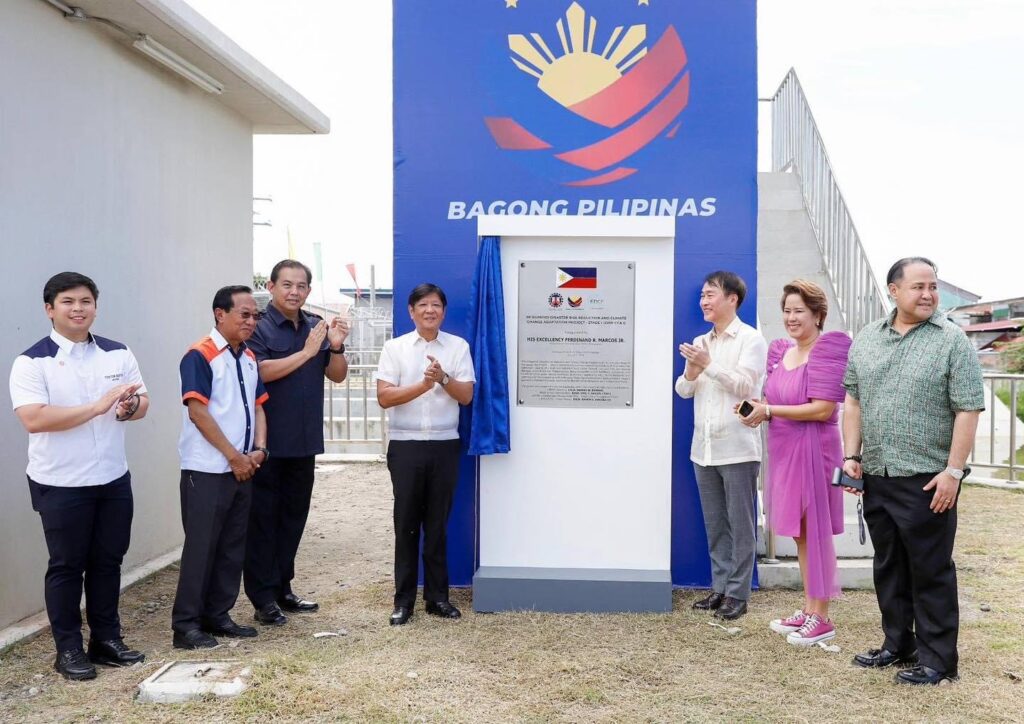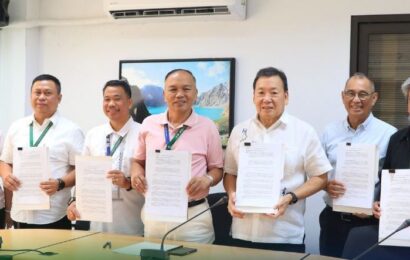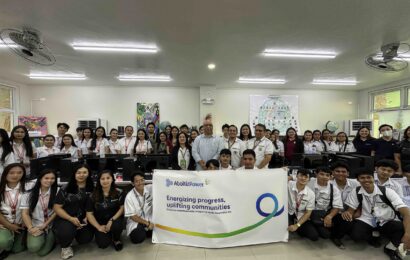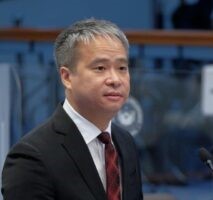MASANTOL, Pampanga (PIA) — President Ferdinand R. Marcos Jr. inaugurated the Integrated Disaster Risk Reduction and Climate Change Adaptation Project – Stage I (IDRR-CCA 1) in Masantol, Pampanga.

The P7.57-billion infrastructure project, spearheaded by the Department of Public Works and Highways (DPWH) and funded by the Export-Import Bank of Korea-Economic Development Cooperation Fund, aims to mitigate flood levels and reduce flooding duration in the province’s low-lying areas, particularly the towns of Macabebe, Masantol, Minalin, and Sto. Tomas.
During the inauguration, Marcos underscored the project’s importance in his speech, noting the historical context and the challenges faced by Pampanga.
“It is with great pleasure that I join you here today to inaugurate the Integrated Disaster Risk Reduction and Climate Change Adaptation Project – Stage 1,” he said.
The Chief Executive attributed the project’s realization to the support from the Korean government, which came as a response to the devastating eruption of Mount Pinatubo in June 1991.
“This led to heavy siltation along the streams, rivers, all the waterways, decreasing the discharge capacities and causing heavy flooding during the rainy season,” he explained, emphasizing the urgency of addressing the flooding issues.
Marcos highlighted the project’s financial and technical backing from the Korean government, which facilitated the development of a comprehensive study, laying the foundation for the construction of necessary flood control structures.
“The IDRR-CCA 1 costs more than P7 billion and aims to mitigate flood damage by increasing the discharge capacity of the Third River, the Eastern Branch River, the Sapang Maragul River, and the Caduang Tete River,” he added.
The President also instructed DPWH to proceed with Stage 2 of the IDRR-CCA project to ensure long-term solutions to flooding in Pampanga.
“Once it is fully completed, the IDRR-CCA will reduce the flood level and flood duration from 66 days to 17 days in the municipalities of Macabebe, Masantol, Minalin, and Sto. Tomas,” he stated, expressing optimism about the project’s impact on the local communities.
Meanwhile, Republic of Korea Ambassador to the Philippines Lee Sang-hwa highlighted the project’s significance in the broader context of Philippine-Korea relations.
“Today’s event is especially significant because it aligns well with other important occasions related to Philippine-Korea relations,” Lee remarked.
He praised the collaboration between the two nations, emphasizing the project’s role in mitigating climate change impacts and enhancing community resilience.
“This project aims to significantly improve the drainage efficiency of the river channel network in Pampanga, thus alleviating the chronic flooding that has plagued many towns,” Lee added.
Moreover, DPWH Secretary Manuel Bonoan also spoke about the project’s milestones and the continuous efforts to protect lives and properties from natural disasters.
“Today is a significant milestone in our efforts to reduce the impacts of natural disasters,” Bonoan said.
He acknowledged the ongoing challenges since the 1991 eruption of Mount Pinatubo and the need for comprehensive flood-control measures.
Likewise, Pampanga 4th District Representative Anna York Bondoc highlighted the long journey to realizing the project.
“We are deeply honored by your presence today at the inauguration of the first-ever climate change loan of the Philippines,” Bondoc said, emphasizing the project’s conception more than 15 years ago.
She expressed gratitude for the national government’s support throughout the years, noting the project’s significance in addressing climate change and flooding.
Overall, the inauguration marks a significant step in enhancing the country’s resilience to natural disasters and mitigating the adverse effects of climate change.
SOURCE: Rick P. Quiambao PIA3





